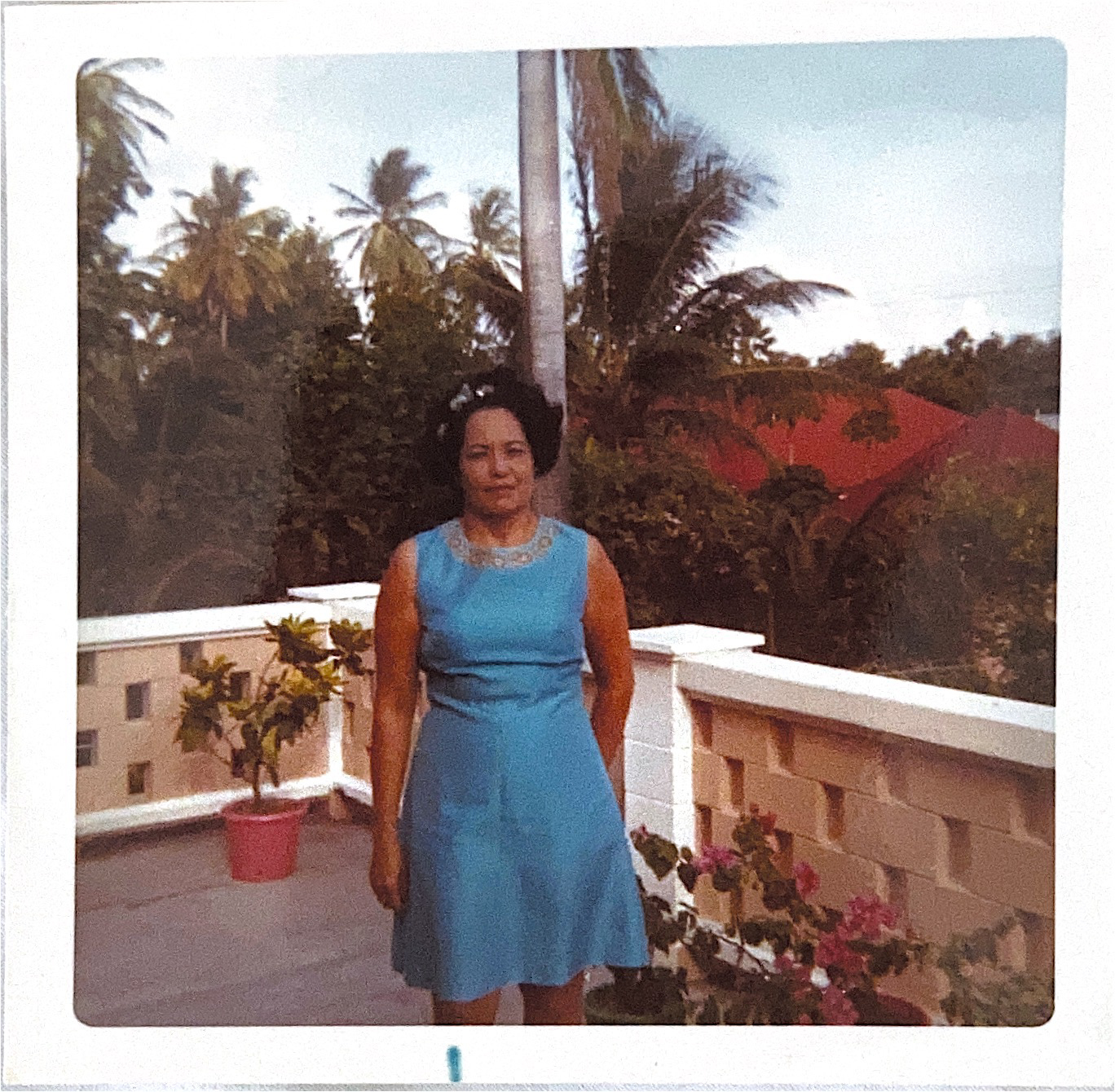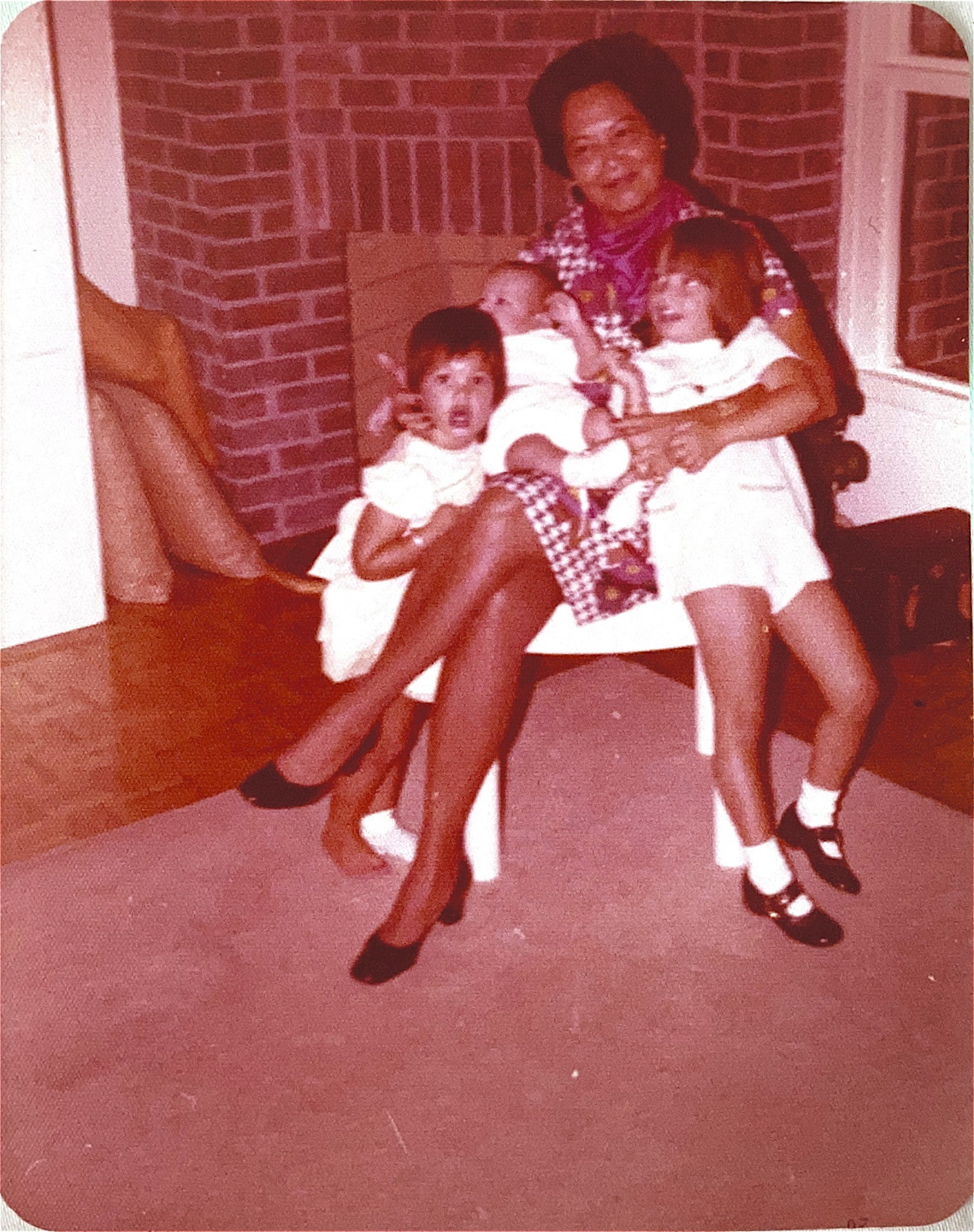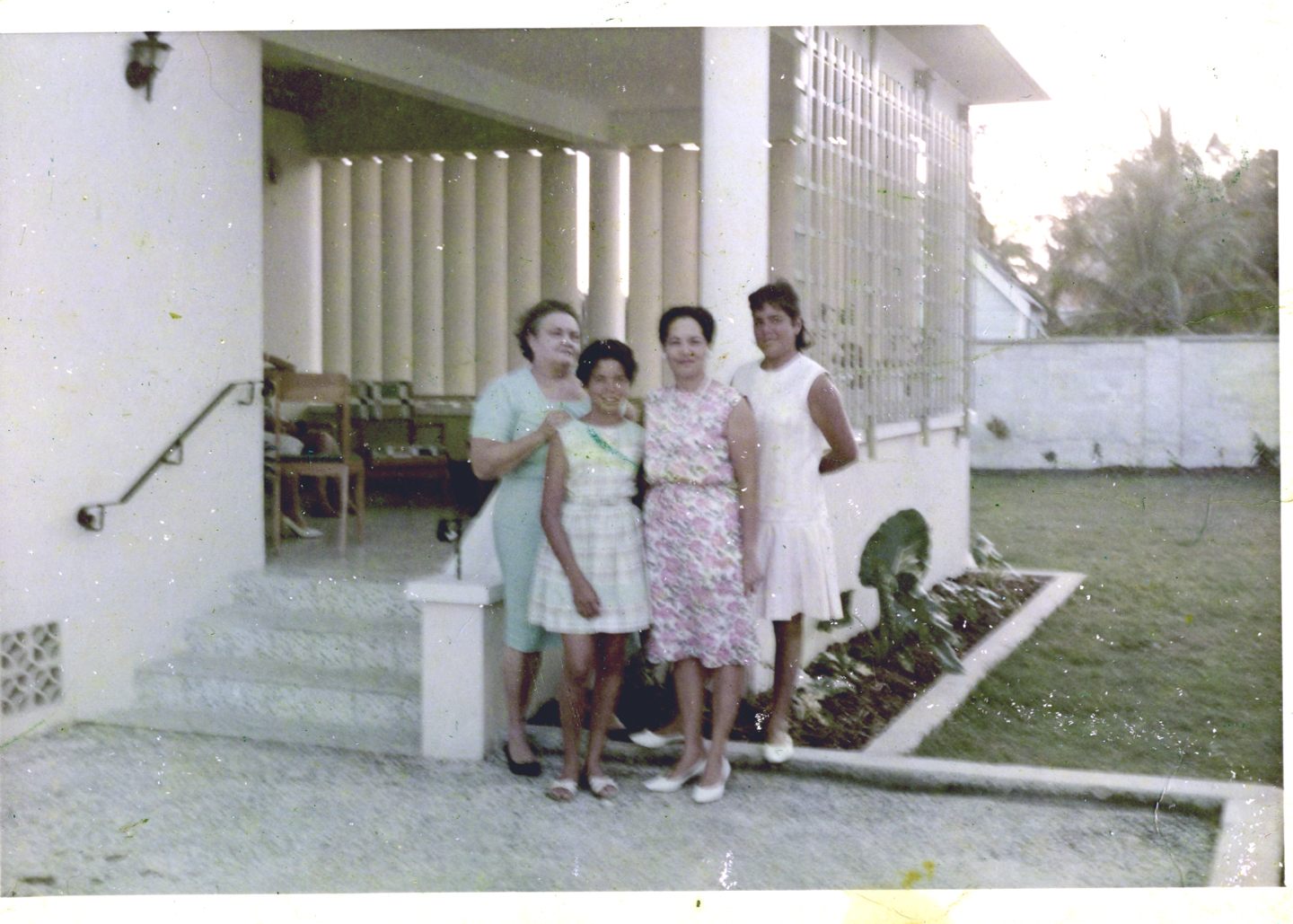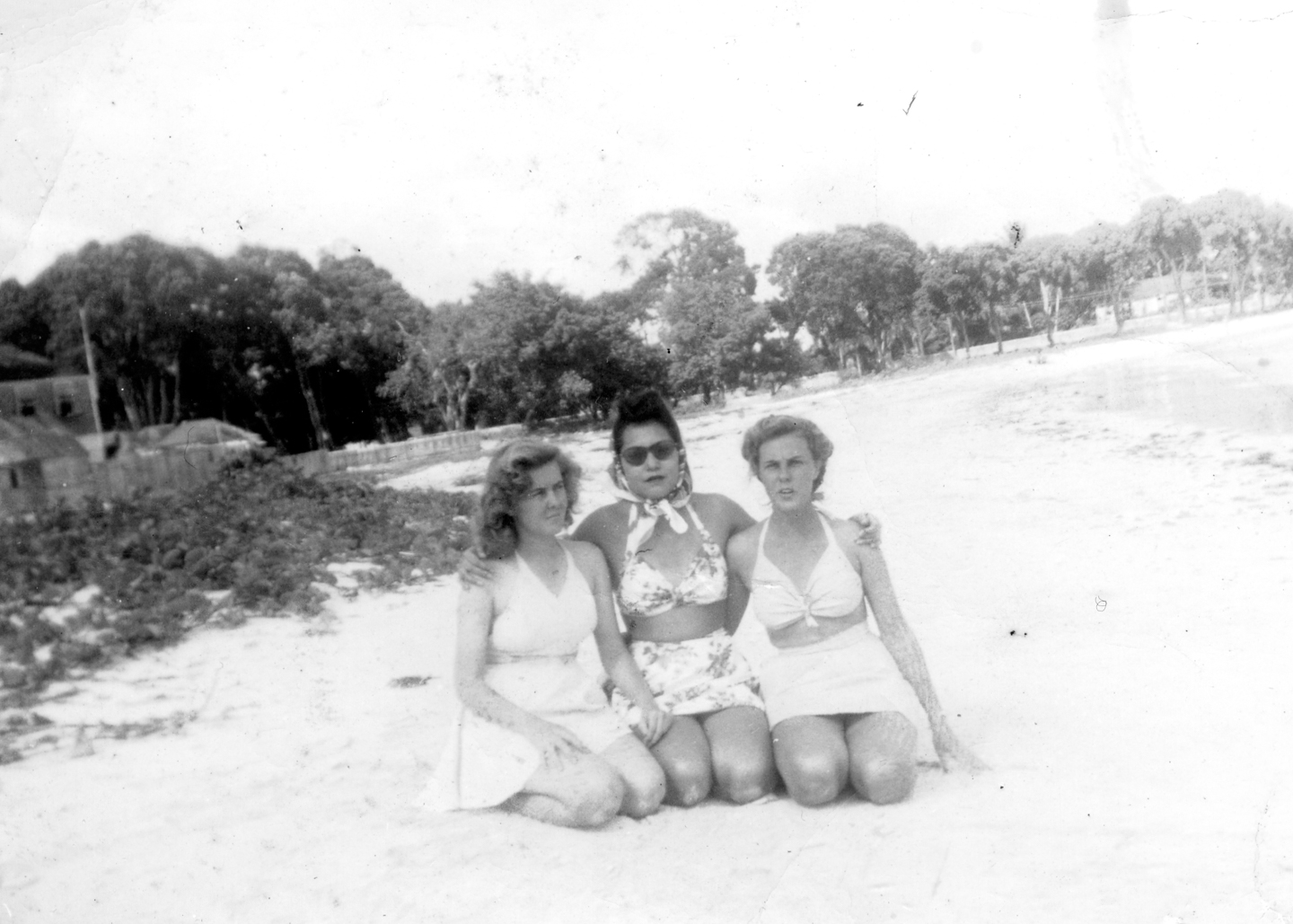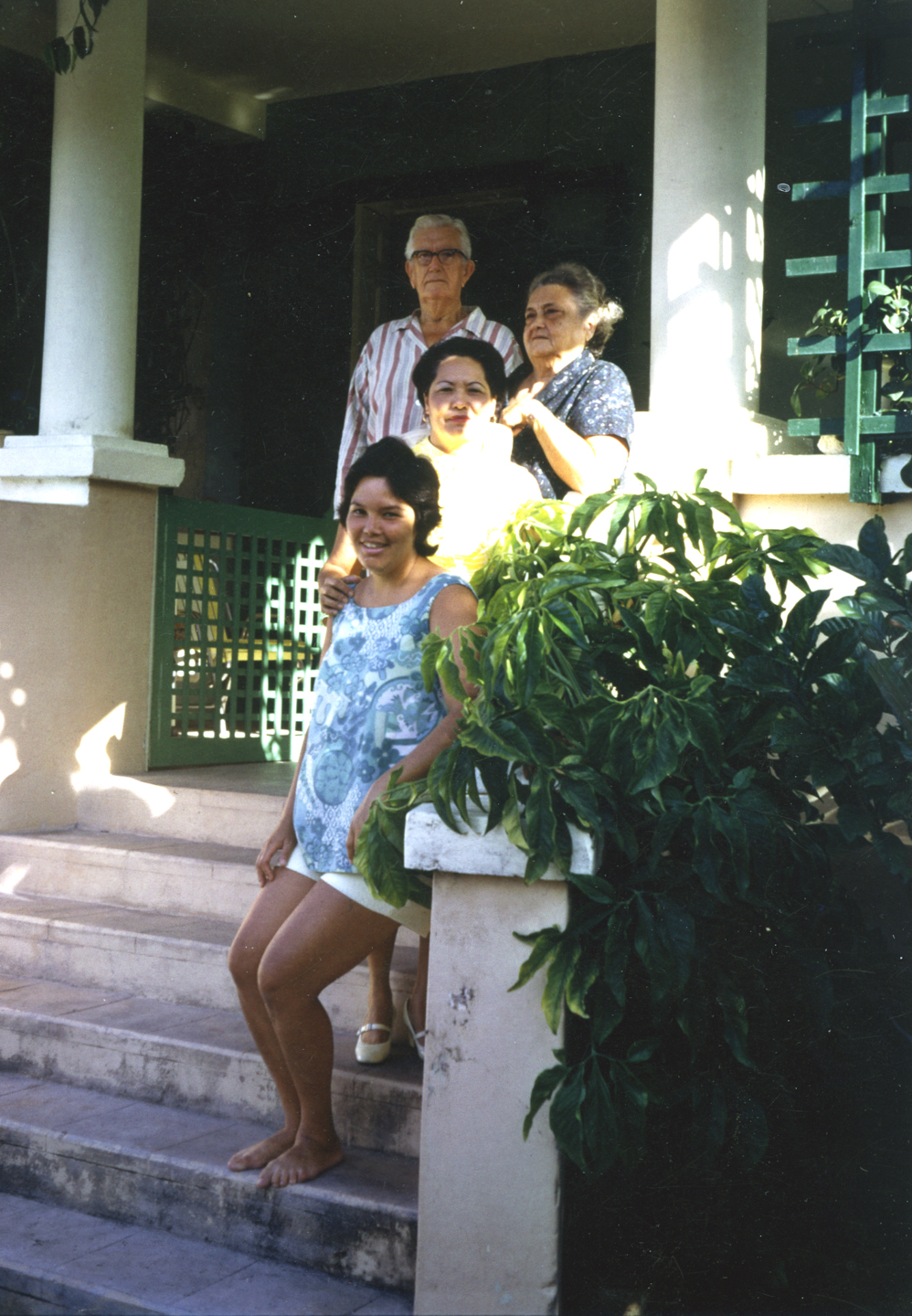Family photographs are often incomplete, filled with missing stories, distortions, and memories blurred by time. In revisiting my family’s archive, I engage in an act of rediscovery, piecing together fragments of my great-grandmother’s life and lineage through textile collage and printing manipulation. My work explores intergenerational trauma, matrilineal strength, and the ways in which gender, class, and cultural expectations shape family narratives in the Caribbean.
My great-grandmother, Leone “LCQ” Catherine Querino, left her husband and her life in Trinidad behind in 1956 to escape abuse and forge a new future for her three daughters. Born out of wedlock to a single white mother and an unacknowledged Chinese father, she was labelled an “illegitimate child” under the doctrines of the Catholic Church and the Barbadian government, a designation that shaped her social status, relationships, and the trajectory of her life. She established a home in Barbados, where she opened Hut Boutique to provide for her family. In her passing at the age of 101, layers of her story began to unfold, revealing not just her resilience but the foundational role of the women in my lineage as caretakers, cultural keepers, and decision-makers within the patriarchal narrative. Through conversations with my grandmother, LCQ’s eldest daughter, I navigate how personal and collective memory shape our understanding of these roles, and how trauma often distorts what is remembered and passed down.
In this series, I use textile collage and annotation to recontextualize family photographs, placing together my interpretations of my great-grandmother’s life and the inherited histories that connect us. I experiment with cyanotype printing, the re-bleaching and dying of photographs, and the use of natural textiles to develop images on fabric, including cotton, bamboo and silk, materials historically tied to domestic and feminine labour. This project reflects on the women in my family as pillars of strength and continuity and catalyzes a cultural dialogue within the broader Caribbean diaspora, while grappling with key questions: How do women reclaim autonomy and navigate matriarchal roles within a patriarchal society? And in what ways do race, class, and gender intersect to shape power dynamics within my lineage?
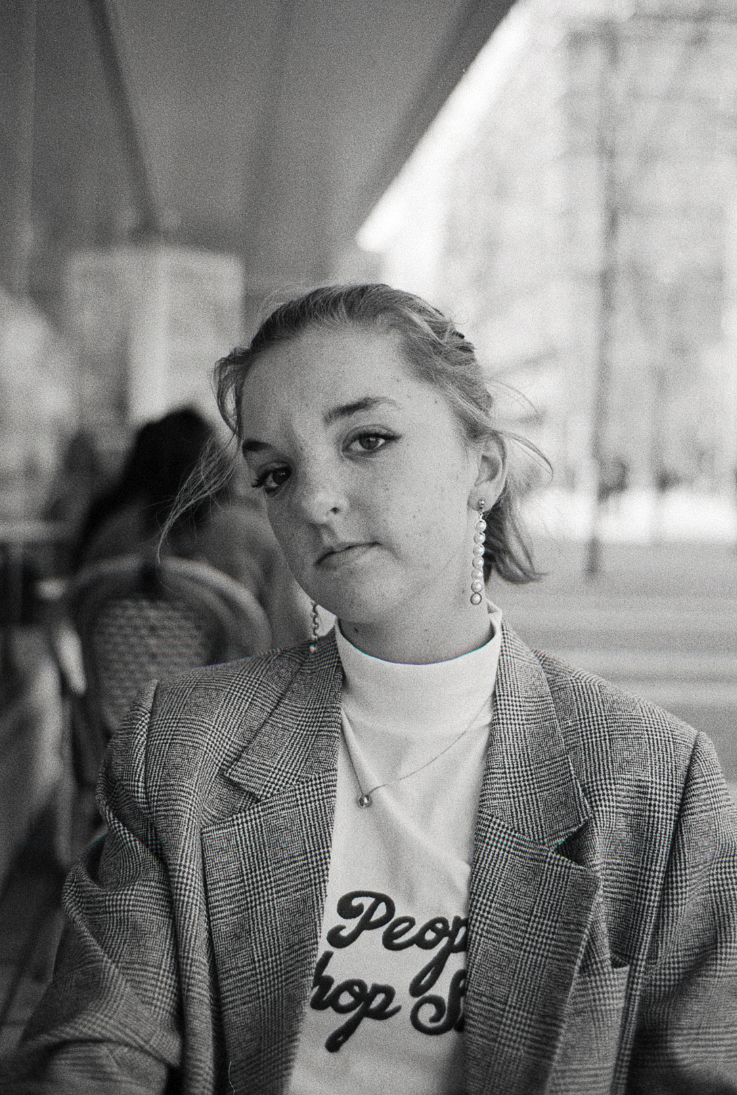
Emily Cole (she/her) is a multidisciplinary artist and visual storyteller based in Tkaronto/Toronto, Canada. Her work spans editorial photography, alternative processes, printmaking, and collage. Drawing from a passion for sociology and a fascination with human interaction, Cole grounds her practice in transformative justice, as well as in contemporary queer and feminist theories. Through themes of identity, self-discovery, belonging, and human connection, she not only captures moments frozen in time but also encourages introspection, inviting viewers to reflect on their place within the larger societal context. Currently pursuing a BFA in Photography Media Arts at Toronto Metropolitan University, Cole continues to expand both her creative and academic practice.

